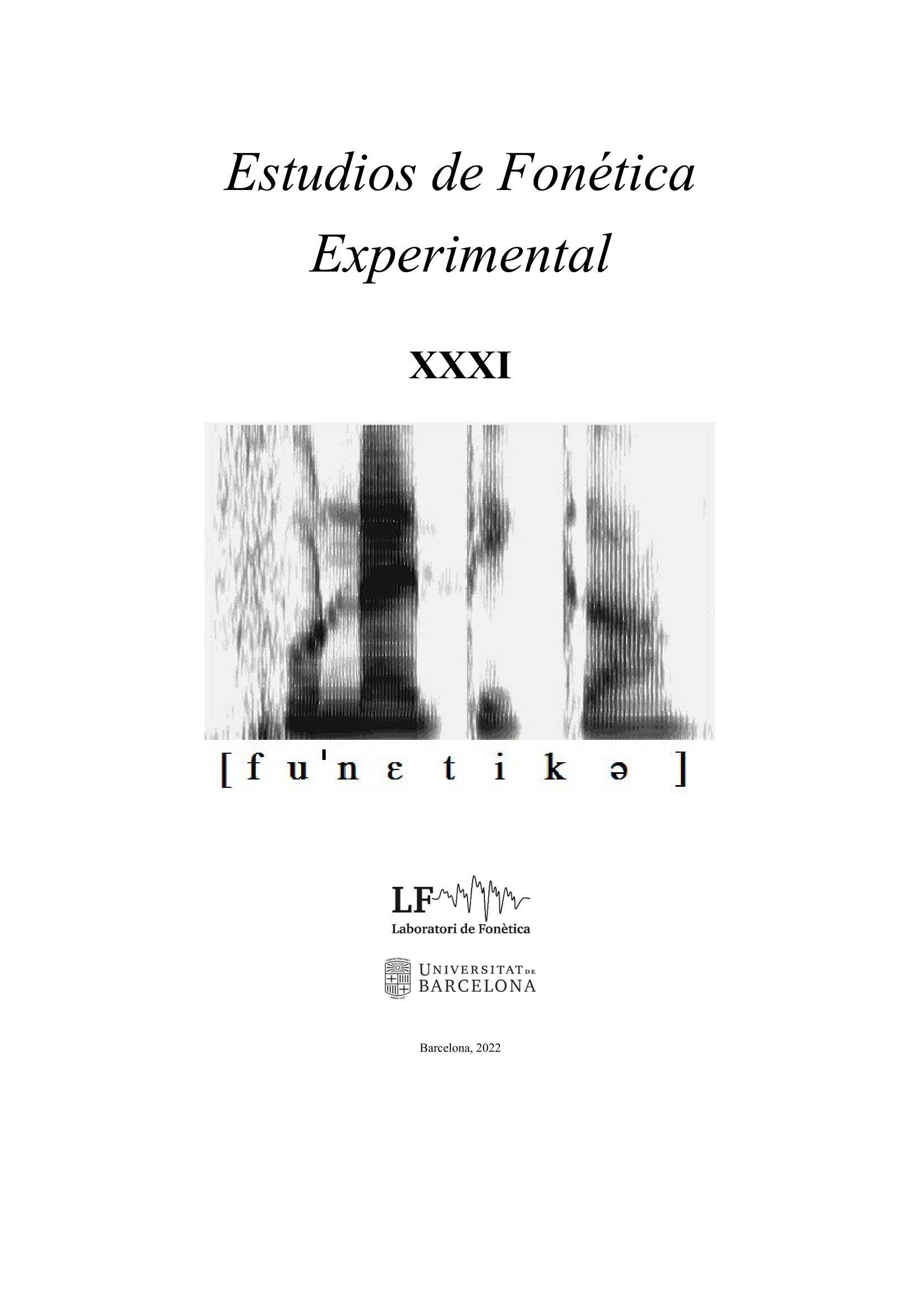“Ash” [æ] sound then and now
An overview of the current state of knowledge
DOI:
https://doi.org/10.1344/efe-2022-31-163-167Keywords:
ash sound, received pronuntiation, General American, English vowels, vowel systemAbstract
The objective of this article is to review the existing studies on the British Received Pronunciation “ash” [æ] sound, as well as its variations outside the United Kingdom. It starts with a short analysis of sociolinguistic aspects of the Received Pronunciation accent, then it points out the most conspicuous differences between the Received Pronunciation and General American vowel systems. Then, it presents the early beginnings and the further developments of [æ], and finally, it discusses the alternations in the pronunciation of this sound and the most important examples of phonological variations for [æ] outside the UK.
References
Brynmor, T. (2003). A Study of the /el/-/ael/ Merger in New Zealand. New Zealand English Journal, 17, 28-44.
Clark, U., & Asprey, E. (2013). West Midlands English: Birmingham and the black country. Edinburgh University Press. https://doi.org/10.1515/9780748685806
Cox, F., & Palethorpe, S. (2001). The changing face of Australian English vowels. In D. Blair, & P. Collins (Eds.), English in Australia (pp. 17-44). John Benjamins. https://doi.org/10.1075/veaw.g26.05cox
Cruttenden, A. (2014). Gimson's pronunciation of English. Routledge. https://doi.org/10.4324/9780203784969
Dobbie, E. V. K., & van Kirk, E. D. (1942). The Anglo-Saxon minor poems (issue 6). Columbia University Press.
Dobson, E. (1968). English pronunciation, 1500- 1700. Oxford University Press.
Gimson, A. C. (1980). An introduction to the pronunciation of English (3rd ed.). Edward Arnold.
Goldsmith, J. (2010, January 19). Vowel shifts in English. http://people.cs.uchicago.edu/~jagoldsm/slide s/2010-vowel-shift.pdf
Gupta, A. F. (2005). Baths and becks. English Today, 21(1), 21-27. https://doi.org/10.1017/S0266078405001069
Hauge, A. (2004). Arild Hauge's Runes. https://www.arild-hauge.com/index.htm International Phonetic Association (Ed.). (1999). Handbook of the International Phonetic Association: A guide to the use of the International Phonetic Alphabet. Cambridge University Press. https://doi.org/10.1017/9780511807954
Labov, W. (2008). The Atlas of North American English: Phonetics, Phonology and Sound Change. De Gruyter Mouton.
Lanehart, S. L. (2015). The Oxford handbook of African American language. Oxford University Press.
McCarthy, C. (2010). The Northern Cities Shift in real time: evidence from Chicago. University of Pennsylvania Working Papers in Linguistics, 15(2), Article 12. https://doi.org/10.1177/0075424210384226
Page, R. I. (1999). An introduction to English runes. Boydell and Brewer.
Petyt, K. M. (1985). 'Dialect' and 'accent' in industrial West Yorkshire. John Benjamins. https://doi.org/10.1075/veaw.g6
Piercy, J. (2012). The story of English: How an obscure dialect became the world's most- spoken language. Michael O'Mara Books.
Thomas, E. (2006). Evidence from Ohio on the evolution of /æ/. In T. Murray & Simon, B. (Eds.), Language variation and change in the American midland: A new look at 'heartland' English (pp. 69-93). John Benjamins. https://doi.org/10.1075/veaw.g36.06tho
Trudgill, P. (1984). Language in the British Isles. Cambridge University Press.
Vaux, B., & Golder, S. (2003). The Harvard dialect survey. Harvard University Linguistics Department.
Wells, J. C. (1982a). Accents of English. Volume 1: An introduction. Cambridge University Press. Wells, J. C. (1982b). Accents of English. Volume 3: Beyond the British Isles. Cambridge University Press. https://doi.org/10.1017/CBO9780511611766
Yang, J. H. (2021). The TRAP-BATH split in RP: A linguistic index for English learners. International Review of Applied Linguistics in Language Teaching, 59(2), 153-179. https://doi.org/10.1515/iral-2017-0156
Downloads
Published
How to Cite
Issue
Section
License

This work is licensed under a Creative Commons Attribution-NonCommercial-NoDerivatives 4.0 International License.
All articles published online by Estudios de Fonética Experimental are licensed under Creative Commons Attribution-NonCommercial-NoDerivs 4.0 International (CC BY-NC-ND 4.0 DEED), unless otherwise noted. Estudios de Fonética Experimental is an open access journal. Estudios de Fonética Experimental is hosted by RCUB (Revistes Científiques de la Universitat de Barcelona), powered by Open Journal Systems (OJS) software. The copyright is not transferred to the journal: authors hold the copyright and publishing rights without restrictions. The author is free to use and distribute pre and post-prints versions of his/her article. However, preprint versions are regarded as a work-in-progress version used as internal communication with the authors, and we prefer to share postprint versions.




